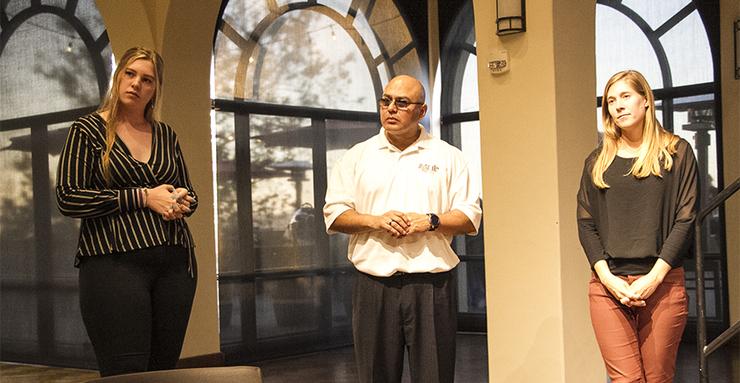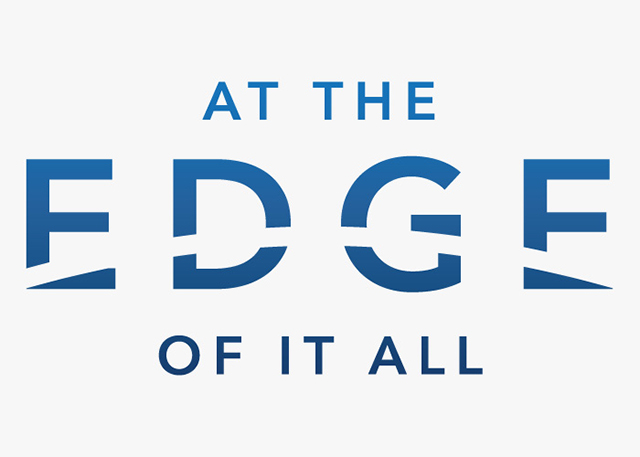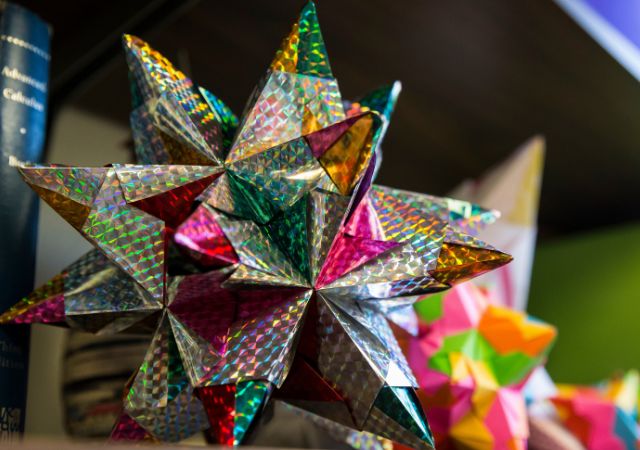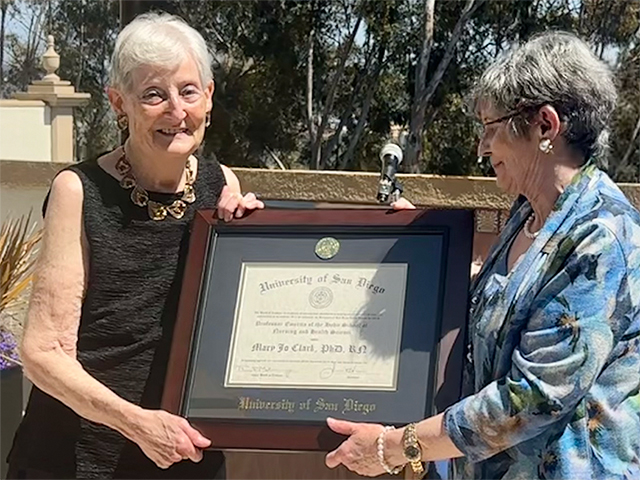LIFE Week: Discussing Dignity of Human Life in All Forms
 From left, Domenica Barbagelata-Miller, Ernie Garcia and Leslie Willis, listen intently to a question asked during a LIFE Week event Tuesday regarding dignity of those who've been or are incarcerated.
From left, Domenica Barbagelata-Miller, Ernie Garcia and Leslie Willis, listen intently to a question asked during a LIFE Week event Tuesday regarding dignity of those who've been or are incarcerated.The acronym for the annual University of San Diego Students for Life spring event, L.I.F.E. Week, is Life Is For Everyone. This week’s collection of events, April 1-7, always strive to give the campus community the chance to take a deeper dive into learning about people from all walks of life.
On Tuesday night in the Hahn University Center’s Forum C, Students for Life, in connection with University Ministry’s Spirituality is Served event, had a first for L.I.F.E. Week. The focus was on the dignity of persons who have been incarcerated.
“This event is an opportunity for students to come together, share a meal, and to learn about a topic they might not think about,” said sophomore Corina Martinez, president of USD’s Students for Life. “Spirituality is Served offers us that place to talk about it.”
Sophomore Richard Benson, also with Students for Life, hosted the event. He introduced three speakers: USD freshman Domenica Barbagelata-Miller, USD graduate alumna Leslie Willis ’18 (MASI) and Ernie Garcia, a former gang member and drug user in his teen years who was sentenced to prison for 75 years to life but whose turnaround due to his deep religious faith and a California ruling (SB 260) that gave him a chance to re-enter society — his parole had been set for 2041 — after serving a quarter of his sentence.
Benson also showed a three-plus minute video for Brilliance Inside, an organization whose aim is to “work with inmates and correctional officers in the U.S. prison system to reduce conflict and increase communication,” seeking to, according to its website, “transform prison from being strictly a container of violence to a creator of peace by growing resilient high-performance individuals contributing their purpose and a safer society on their release.”
Barbagelata-Miller, a Students for Life member, spoke about volunteering on the Miramar prison base and learning a lot about the power of restorative justice as a way for both a victim and the offender to meet face-to-face and for there to be a level of healing and repair.
Willis reflected on her time as a student in the Kroc School’s Master of Arts in Social Innovation and a project she got involved with that followed what MASI is all about — “students are encouraged to go out into the community, listen to the people, learn with them and work alongside them,” she said in a Kroc School blog story.
Willis, through a fellow student, learned about Rise Up Industries, an 18-month workforce re-entry program for formerly incarcerated individuals. It’s a model based on the successful Homeboy Industries in Los Angeles.
The experience was educational, empathetic and it led her to help devise a storytelling project. The project resulted in a book, Writing After Life: Stories from Those Who Served a Life Sentence, a compilation of stories about four Rise Up Industries members’ experiences with gangs, their transformations in prison and the rewards and challenges that come with receiving a second chance at life.
Garcia shared his story and how his life changed while he was in prison. “God and my faith gave me purpose. Once I embraced my faith, found out what was inside, my environment changed.”
He was paroled in December 2017. Though he was able to leave prison, his attitude toward the preciousness of life is such that he’s eager to help others.
During a post-speech question from an audience member Tuesday night, asking him what he would say to a teenager now, his reply was: “I would say there is something missing in his life. Kids who are ages 13-18 and are angry, might not know what it is, but they need to find purpose in their lives.”
The three speakers’ presence, experiences and words encouraged table discussion for the audience and it brought everyone in the room a bit closer for sharing an experience that hopefully stimulates their desire to share what they did see and hear to broaden the awareness and see people from a deeper point of view than what’s on the surface.
There was also a quote provided at each table from the late Pope John Paull II from an address he gave in 2000 worth taking in and thinking about it as it pertains to dignity of the incarcerated.
“We are still a long way from the time when our conscience can be certain of having done everything possible to prevent crime and to control it effectively so that it no longer does harm and, at the same time, to offer to those who commit crimes a way of redeeming themselves and making a positive return to society. If all those in some way involved in the problem tried to … develop this line of thought, perhaps humanity as a whole could take a great step forward in creating a more serene and peaceful society.”
LIFE Week’s inclusion of dignity for the incarcerated is an opportunity to open one’s mind to new information. “LIFE Week is a week for us to have uncomfortable conversations on these issues,” Martinez said. “We want to look at life in all forms. It’s very important to advocate for human life at every age.”
That’s what has happened all week long. The 2019 LIFE Week schedule has had a human dignity forum with USD faculty and staff members, the chance to be together for praise and worship, the rosary and attend Mass for Peace, a sandwich-making and lunch-packing opportunity to give and help those in need and on Friday, April 5, there will be a Mental Health Fair from 11 a.m. to 2 p.m. outside at Plaza San Diego in front of Maher Hall. On Sunday, April 7, there is a Race for Life 5K Run/Walk. Interested participants are to meet at Hahn University Center 238, by 11:45 a.m. and there will be transportation to the Mission Bay area for the event.
One other staple of LIFE Week is its annual Photo Contest. The display for all photo entries this year is in the Hahn University Center Foyer across from UC Forum A. Take a moment to vote for your favorite photo depicting life.
— Ryan T. Blystone
Contact:
USD News Center
news@sandiego.edu
(619) 260-4681



